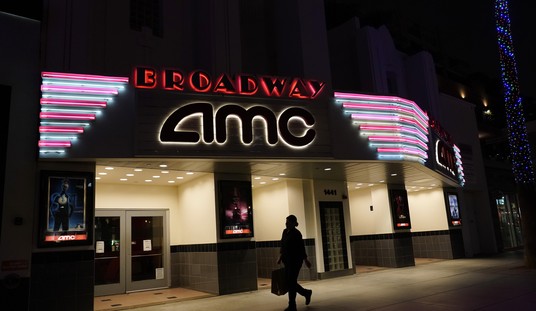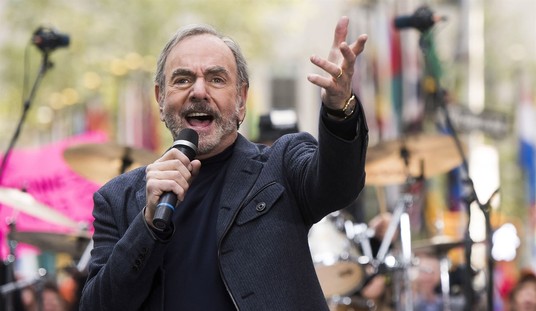Over his first term, Mr. Obama, 51 years old, has fundamentally shifted his view of modern presidential power, say those who know him well. He is now convinced the most essential part of his job, given politically divided Washington, is rallying public opinion to his side.
As a result, if he wins a second term, Mr. Obama plans to remain in campaign mode…
The president views a second term in some ways as a second chance, an opportunity to approach the office differently, according to close aides. He would like to tackle issues such as climate change, immigration, education and filibuster reform.
He has told some aides that a sizable mistake at the start of his administration was his naiveté in thinking he could work with Republicans on weighty issues.
[E]ven if negative campaigning works, a re-elected Mr Obama will need the strength that comes from a convincing agenda. Otherwise the Republicans, who will control the House and possibly the Senate too, will make mincemeat of him. And … it is not just Mr Obama who needs a plan. America does too. Its finances and its government require a drastic overhaul. Surely this charismatic, thoughtful man has more ideas about what must be done than he has so far let on?
A tempting option will be to galvanise his party base, with talk of more health reform and threats of higher taxes on business and the rich. Rather than redesigning government, he could suck up to the public-sector unions by promising that jobs will not be cut. Rather than cutting entitlement programmes, he could reassure the elderly that America can actually afford them…
Incumbents tend to win presidential elections, but second-term presidents tend to be disappointing. Mr Obama’s first-term record suggests that, if re-elected, he could be the lamest of ducks. That’s why he needs a good answer to the big question: just what would you do with another four years?
This election is not about what happened before Obama become president. It’s about his failure to make things better, and it is about where we are going in the future.
Obama didn’t close that factory — but he hasn’t re-opened it either. Despite telling the people of Janesville that was the plan. When GM announced in October 2008 that it would be halting production there, then-candidate Obama said, “As president, I will lead an effort to retool plants like the GM facility in Janesville so we can build the fuel-efficient cars of tomorrow and create good-paying jobs in Wisconsin and all across America.”
Though Obama got his bailout, the people of Janesville are still waiting for that re-tooling. It’s that failure to accomplish the very goals he set out for himself that is the greatest indictment of Obama’s presidency.
[L]et me make a modest observation from having spent much of the last few months traveling round foreign parts. When you don’t have frighteningly white upscale liberals obsessing about the racist subtext of golf, it’s amazing how much time it frees up to talk about other stuff. For example, as dysfunctional as Greece undoubtedly is, if you criticize the government’s plans for public-pensions provision, there are no Chris Matthews types with such a highly evolved state of racial consciousness that they reflexively hear “watermelon” instead of the word “pensions.” So instead everyone discusses the actual text rather than the imaginary subtext. Which may be why political discourse in the euro zone is marginally less unreal than ours right now: At least they’re talking about “austerity”; over here we’re still spending, and more than ever.
Time’s Mark Halperin wrote this week that “Obama can’t win if he can’t swing the conversation away from the economy.” That’s a pretty amazing admission. The economy is the No. 1 issue on the minds of voters, and, beyond that, the central reality of Obama’s America. But to win the president has to steer clear. That doesn’t leave a lot else. Hence, the racism of golf, the war on women, the carcinogenic properties of Mitt Romney. Democrat strategy 1992: It’s the economy, stupid. Democrat strategy 2012: It’s the stupidity, economists.
Four years on, the speeches are starting to grate. Americans are tiring of their leader’s charm, much as we tired of Tony Blair’s. When demanding a trillion-dollar stimulus package at the start of his term, Mr Obama promised that it would bring unemployment down to below 5.6 per cent; today, the figure stands at 8.3 per cent. He pledged, in that slightly millenarian manner of his, to halve the deficit. Four years on, the deficit has fallen from $1.3 trillion to, er, $1.2 trillion. America’s credit rating has been downgraded as $5 trillion has been added to the national debt.
These are indescribable sums. There are no superlatives that can adequately convey what a $16 trillion national debt means. But Americans don’t need to wrap their minds around the statistics to know that they are worse off than they were 12 months ago, and will be yet worse off 12 months from now…
Whether Mitt Romney can eliminate the deficit is not clear. What is beyond doubt, though, is that Mr Obama cannot. His four years have left America poorer, less happy and less free. As Clint Eastwood told Republican delegates: “Politicians are employees of ours – and if somebody does not do the job, we gotta let ’em go.”
In a television interview after Mr Romney’s speech, the presenter asked me whether it was possible to win on an austerity message. Hadn’t the Greeks just punished the politicians who suggested deep budget cuts? “Yes,” I told him, “but Americans aren’t Greeks. We expect better of you.”
In 1992, candidate Bill Clinton’s campaign ran an ad that began: “For so long government has failed us, and one of its worst features has been welfare. I have a plan to end welfare as we know it.” This was before progressives defined progress as preventing changes even to rickety, half-century-old programs: Republicans “would end Medicare as we know it.”
When did peculiarly named progressives decide they must hunker down in a defensive crouch to fend off an unfamiliar future? Hoover Dam ended the lower Colorado River as we knew it. Rockefeller Center ended midtown Manhattan as we knew it. Desegregation ended the South as we knew it. The Internet ended . . . you get the point. In their baleful resistance to any policy not “as we know it,” progressives resemble a crotchety 19th-century vicar in a remote English village banging his cane on the floor to express irritation about rumors of a newfangled, noisy and smoky something called a railroad.
According to new research released today by Rasmussen, more voters identify themselves as Republican than ever in the last 8 years. More importantly, by a 4 point margin, more voters identify as GOP than Democrat. This is the largest spread between the parties ever. Worse for Democrats, the number of voters who identify with their party is also approaching an historic low.
In August, 37.6% of voters identified themselves as Republican. That is up from 34.9% in July. By contrast, just 33.3% of voters identify themselves as Democrats. That is very near their historic low in February, when 32.4% of voters identified as Democrat. The 4.3 margin in favor of the GOP is the biggest gap ever between the parties. In November 2010, when the GOP won a landslide in the mid-term elections, their advantage was just 1.3 points…
If the GOP advantage holds through November, it is likely that the electorate will be evenly split, like it was in 2004 or possibly have a Republican edge. If that is the case, then current media polling is way off-base. Democrats and the media may wake up in shock on November 7th.
Through three nights of gauzy videos, sentimental testimonials and, finally, his own address to the nation Thursday, Mitt Romney worked hard to show he has a heart.
But he still needs to tackle the much harder job of convincing those Americans who so emotionally invested their hearts in President Obama four years ago that it is time to accept that his presidency did not work, let go of him and move on…
After month after month of disappointing job numbers, poll after poll showing dissatisfaction in his economic performance and hundreds of millions of dollars in negative advertisements, a large portion of wavering voters maintain a personal attachment to Mr. Obama, and a tentative willingness to give him more time to get it right, top strategists with both campaigns agree…
“It’s going to be hard to break the bond a lot of voters feel with Obama, even if they are disappointed,” said Mark McKinnon, a former strategist for Mr. Bush. “It may be a bad marriage, but they still want to save it.”








Join the conversation as a VIP Member